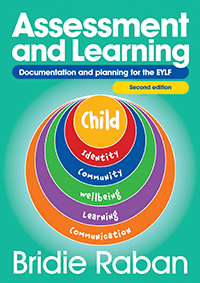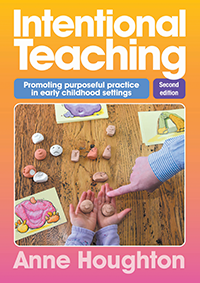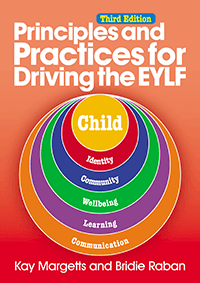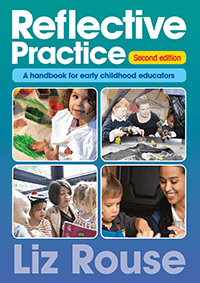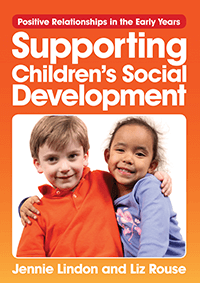Contents |
| Introduction | 4 |
| Why this book is necessary | 5 |
| Ideas for using this book | 5 |
| Belonging, being and becoming –a vision for children’s learning | 7 |
| Maximising potential and developing foundations for the future | 8 |
| What is the United Nations Convention on the Rights of the Child? | 9 |
| What is the Melbourne Declaration on Educational Goals for Young Australians? | 11 |
| What is Early Childhood Australia’s Code of Ethics? | 13 |
| Practice Principle 1: Reflective practice | 14 |
| What is reflective practice? | 14 |
| Why is reflective practice important? | 15 |
| Key features of reflective practice | 15 |
| Practice Principle 2: Partnerships with families | 19 |
| What are partnerships? | 19 |
| Why are partnerships with families important? | 20 |
| Key features of partnerships with families | 20 |
| Practice Principle 3: High expectations for every child | 23 |
| What are high expectations and why are they important? | 23 |
| Key features of high expectations | 24 |
| Practice Principle 4: Respectful relationships and responsive engagement | 26 |
| What are respectful relationships and responsive engagement? | 26 |
| Why are respectful relationships and responsive engagement important? | 28 |
| Key features of respectful relationships and responsive engagement | 29 |
| Practice Principle 5: Equity and diversity | 36 |
| What do equity and diversity mean? | 36 |
| Why are equity and diversity important? | 37 |
| Key features of equity and diversity | 38 |
| Practice Principle 6: Assessment for learning and development | 41 |
| What is assessment for learning and development? | 41 |
| Why is assessment for learning important? | 42 |
| Key features of assessment for learning and development | 43 |
| Practice Principle 7: Integrated teaching and learning approaches | 48 |
| What are integrated teaching and learning approaches? | 48 |
| Why are integrated teaching and learning approaches important? | 49 |
| Key features of implementing integrated teaching and learning approaches | 50 |
| Teaching and learning through play | 54 |
| Intentional teaching | 59 |
| Physical environments for teaching and learning | 65 |
| Practice Principle 8: Partnerships with professionals | 72 |
| What are partnerships with professionals? | 72 |
| Why are partnerships with professionals important? | 73 |
| Key features of partnerships with professionals | 74 |
| Supporting children’s transitions | 76 |
| What are children’s transitions? | 76 |
| Why are transitions important? | 77 |
| Transitions within early childhood settings | 80 |
| Transition to school | 80 |
| Cultural competence | 83 |
| What is cultural competence? | 83 |
| Why is cultural competence important? | 84 |
| Key features of cultural competence | 85 |
| References and further reading | 88 |

